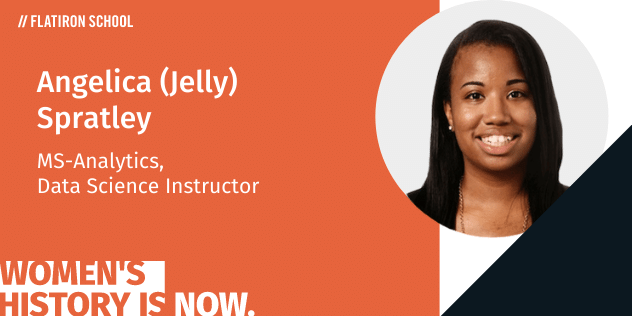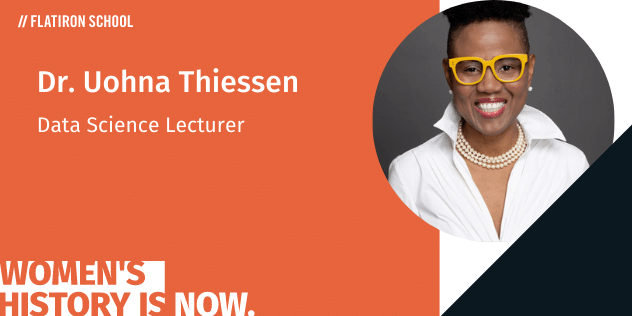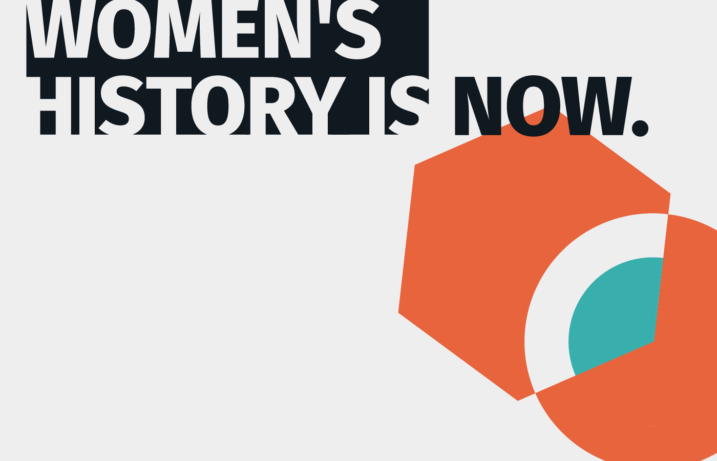Tech has a gender diversity problem, and Flatiron School is on a mission to change it.
Right now, at this very moment women are creating, innovating, and changing the tech landscape, across a variety of fields, and yet still the majority of tech’s employees are men by about 2:1 (Source).
But at Flatiron School, we’re breaking the bias. And the women at Flatiron School are making history in tech right NOW. We’re working hard to make opportunities available for more women in tech through scholarships, women in leadership (our CEO and Chief Operating Officer), and strong women instructors.
These are the stories of our Flatiron School instructors who are innovating both in their own work and how they lead our students. They are making history in tech NOW.
Flatiron School instructors making history in data science

Angelica (Jelly) Spratley, MS-Analytics, data science instructor
There’s a human behind every data point. As a data scientist I strive to limit bias in the data that I collect, model, evaluate, and implement – since my findings will impact society. Furthermore, it is important for women to have role models within this field that they can look up to.
My favorite project would have to be working for a client in order to help predict substance abuse relapse. Creating this predictive model was very impactful and was the true essence of “Data for Good”.
What advice would you give to women considering a career change into tech?
Even though at times it may feel that you have to work 10x harder than your counterpart, be persistent, be positive, and change the world one data point at a time.

Dr. Uohna Thiessen, data science lecturer
One of the women I am inspired by is Timnit Gebru, former technical lead of Google’s Ethical Artificial Intelligence Team. I believe she embodies the phrase ‘representation matters’, both in who she is and the work that she does.
As a Black woman in a senior tech role, she tried to get the company to critically examine societal biases in their products and the opportunity to lead the ‘data for good’ change. After leaving (actually, getting fired for doing her job) she founded her own company, Distributed Artificial Intelligence Research Institute (DAIR) so that she could “document harms and develop a vision for AI applications that can have a positive impact on the same groups.”
My research has focused on the application of data science (DS) and machine learning (ML) in healthcare and preventive medicine. Using observational and clinical data from the American Heart Association, I developed predictive ML algorithms that improved on the performance of the cardiovascular risk prediction models currently in use.
What advice would you give to women considering a career change into tech?
I would advise women to not be intimidated, in fact I would tell them to show up and to ‘take up space’ as they rightfully deserve. Don’t be afraid to bring your whole self; because that is just what may be needed; network with others (men and women); and seek to learn and grow and ultimately contribute meaningfully to your field.




